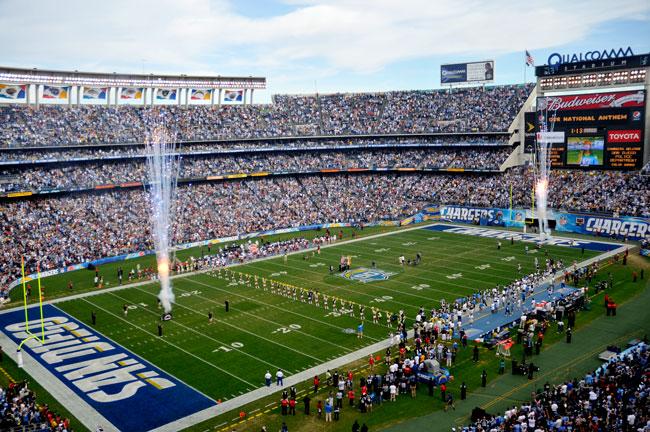Finding a New Home
January 10, 2017
After 15 years of working to get a stadium built in San Diego, the Chargers finally found out from San Diego city voters whether they want to build a new stadium that keeps the team in town. The answer, at least for the project as it currently stands, was a resounding no.
With 100 percent of precincts reporting, the Chargers received only 43 percent approval on Measure C, the team’s $1.8 billion downtown stadium and convention center annex that proposed raising hotel taxes from 12.5 percent to 16.5 percent to secure $1.15 billion in bonds to help pay for the project. The citizens’ ballot initiative required two-thirds of the voting public within city limits to approve the project, a high bar for the team to reach. In a letter sent late Tuesday night, Chargers chairman Dean Spanos thanked season-ticket holders and fans for their support but offered no insight into his intentions moving forward. Currently, the Chargers were at a lost as of where to go.
The Chargers still have the option of being a tenant in the stadium project in Inglewood, California, which is headed up by Rams owner Stan Kroenke. As part of the Rams’ relocation agreement approved earlier this year by NFL owners, the Chargers have until Jan. 15 to decide whether they want to join the Rams in Los Angeles. The two sides agreed to terms on a deal that would bring the Chargers to Los Angeles as the second NFL team earlier this year. If the Chargers decide to stay in San Diego, the Raiders will have the opportunity to move south and join the Rams. However, with the Raiders focused on potentially relocating to Las Vegas, it could buy some time for the Chargers to continue to work on getting something done in San Diego. Spanos said last week that he has no meeting scheduled with Kroenke and that the NFL is supportive of whatever direction the Chargers would like to go.
Last year, as the team partnered with the Raiders in an attempt to develop and fund a new stadium in Carson, California, the Chargers conducted what many in the city view as a scorched-earth policy that put them at odds with San Diego Mayor Kevin Faulconer over the location and financing of a new facility. However, this year, the Chargers committed to getting something done in San Diego after losing the race to Los Angeles to the Rams, which included Spanos working to create a better relationship with Faulconer. After months of negotiations with the team, Faulconer announced three weeks ago his endorsement of the team’s stadium proposal. Faulconer and the Chargers agreed to eight concessions to protect the city’s financial interests and strengthen the team’s ballot initiative. Now that Faulconer and Spanos are on the same page, even with a loss at the polls, the Chargers could continue to work on improving the stadium plan, now that there appears to be some momentum toward building a new facility. Sal Martinez (10), said that “the Charger’s are one of the few teams I enjoy watching play football and I hope that they get this situation sorted out so that they can stay local.”






































